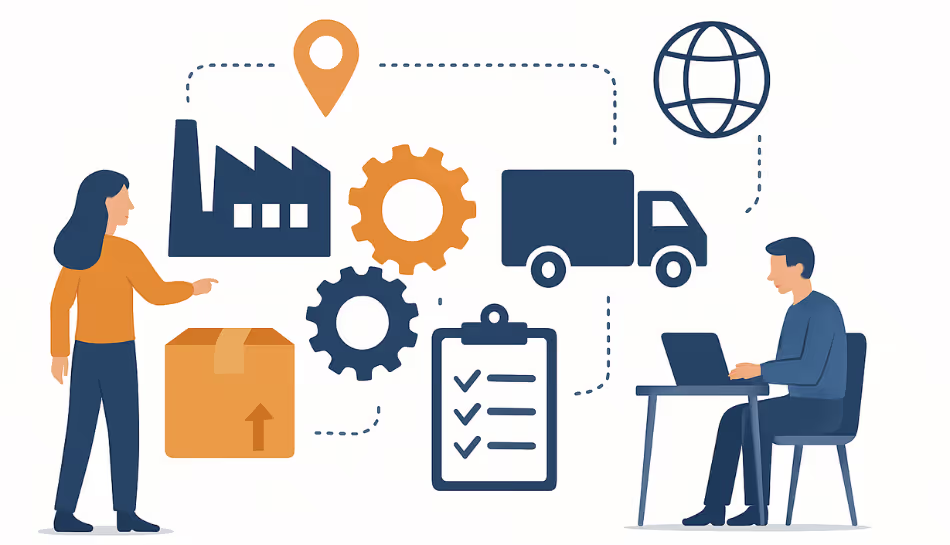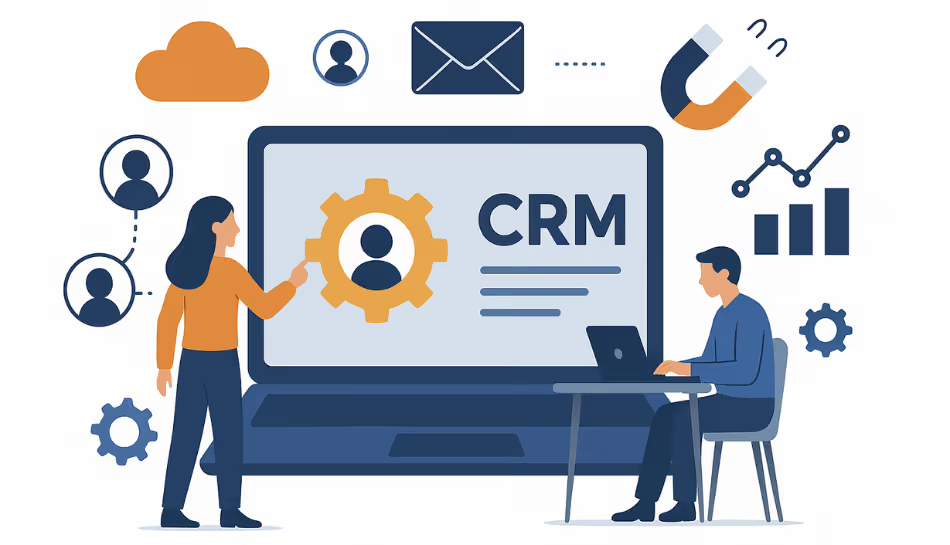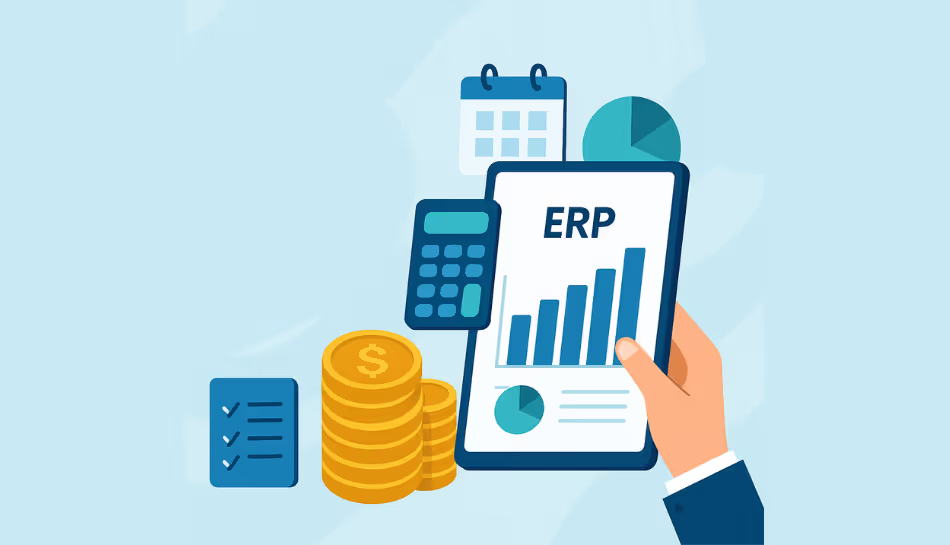Imagine ordering a phone online and receiving it the next day, fully functional, neatly packed, and right on time. Behind that simple experience is a complex web of processes called Supply Chain Management (SCM).
Whether it’s a restaurant serving hot meals or a factory shipping parts around the world, every business relies on a supply chain. Managing it well can mean the difference between profit and chaos.
What is Supply Chain Management?
Supply Chain Management is the process of overseeing the entire journey of a product, from sourcing raw materials to delivering the final item to the customer. It includes planning, purchasing, manufacturing, logistics, warehousing, and customer service.
In short, SCM is about making sure:
- You have the right product
- In the right quantity
- At the right place
- At the right time
- At the right cost
The Main Stages of a Supply Chain
A typical supply chain involves several key stages:
1.Planning
Forecasting demand, managing inventory, and building supply strategies.
2.Sourcing
Choosing reliable suppliers for raw materials or components.
3.Manufacturing
Turning inputs into finished products, safely and efficiently.
4.Logistics
Transporting goods between factories, warehouses, and retailers.
5.Warehousing
Storing products until they’re needed for sale or shipment.
6.Delivery (Last-Mile)
Getting the product into the hands of the end user.
7.Returns Management
Handling product returns, repairs, and customer feedback.
Each step must be coordinated carefully to avoid delays, overstocking, or losses.
Why is Supply Chain Management Important?
Efficient SCM leads to:
- Lower costs (less waste, better negotiation, smarter storage)
- Faster delivery (quicker response to demand)
- Better customer satisfaction (right product, right time)
- Stronger partnerships (reliable vendors, happy clients)
- Business resilience (better risk handling and backups)
In a globalized market, companies that manage their supply chains well stay ahead of the competition.
Challenges in Supply Chain Management
Modern SCM isn’t without its challenges:
- Supply disruptions (natural disasters, strikes, global crises)
- Demand fluctuations (seasonal sales, sudden trends)
- Cost volatility (fuel, labor, or raw material prices)
- Global complexity (multiple countries, languages, and laws)
- Inventory risks (overstocking or stockouts)
This is why many businesses now invest in digital SCM tools and real-time tracking to improve visibility and control.
Modern Solutions: ERP and AI in SCM
In 2025, businesses use advanced tools to optimize their supply chains:
- ERP Software: Integrates data across departments, from procurement to sales, providing real-time updates and better planning.
- AI & Machine Learning: Predicts demand, detects risks, and automates routine decisions.
- IoT Devices: Track goods in transit, monitor warehouse conditions, and update stock levels automatically.
- Blockchain: Ensures transparent and secure transactions, especially in international trade.
For example, Bigsun’s ERP for Manufacturing helps businesses streamline supply chain operations by combining production, inventory, and logistics into a single, easy-to-use platform.
Careers in Supply Chain Management
With the rise of e-commerce and global trade, SCM is one of the fastest-growing career fields. Roles include:
- Supply Chain Manager
- Procurement Officer
- Logistics Coordinator
- Warehouse Manager
- Demand Planner
It’s a great field for people who love planning, organizing, and solving real-world problems.
Final Thoughts
Behind every product you see, whether it’s your morning coffee, your running shoes, or your smartphone, is a well-managed supply chain. Companies that invest in strong Supply Chain Management systems not only save money but also deliver better customer experiences. In a world where speed, quality, and efficiency matter more than ever, supply chain management process is no longer just a backend function, it’s a competitive edge.



